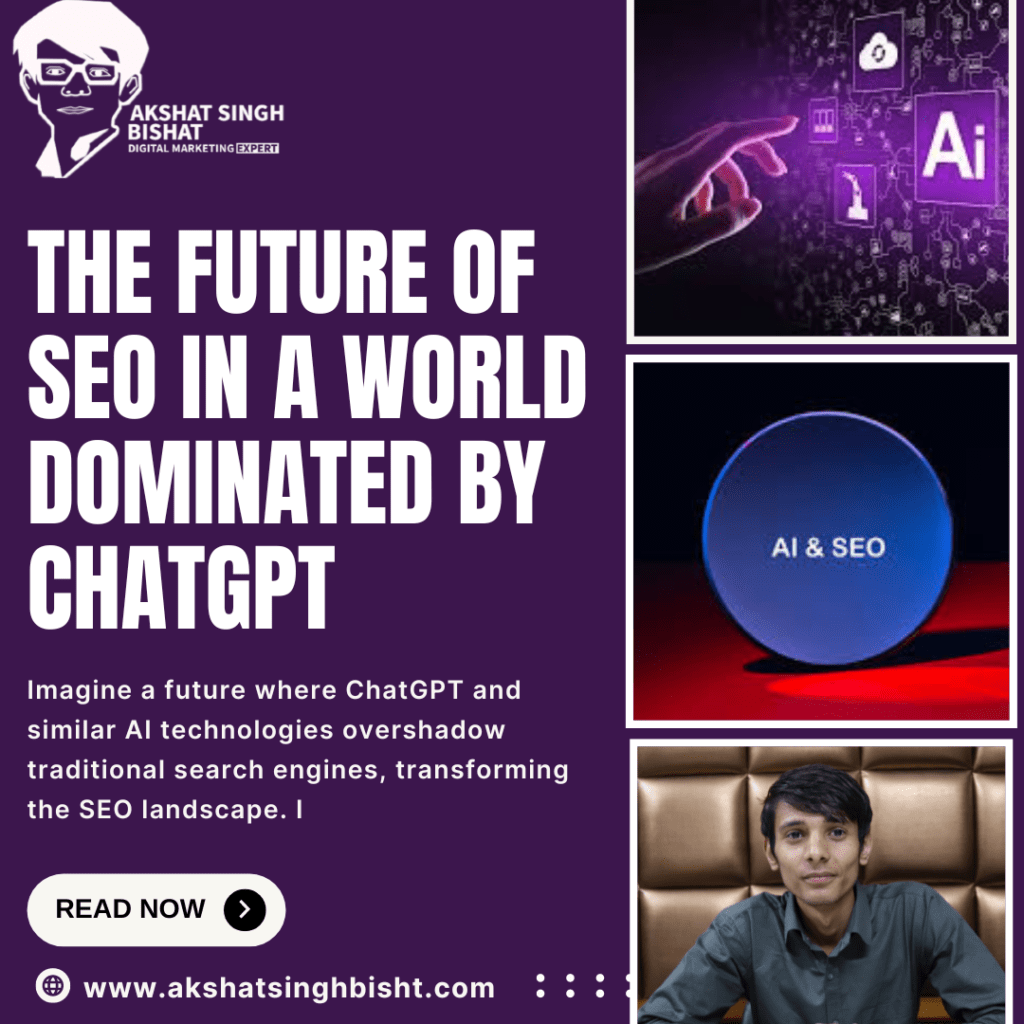In the ever-evolving landscape of digital marketing, search engine optimization (SEO) has been a cornerstone for businesses looking to increase their online visibility. The dominance of search engines, particularly Google, has shaped the strategies and practices of SEO professionals for decades. However, a new player has entered the arena: advanced AI language models like OpenAI’s ChatGPT. Imagine a future where ChatGPT and similar AI technologies overshadow traditional search engines, transforming the SEO landscape. In this blog, we will explore this hypothetical scenario and examine how SEO might evolve if ChatGPT were to “kill” search engines.

Search engines like Google, Bing, and Yahoo! have been the primary gateways to the internet for millions of users. These platforms use complex algorithms to index and rank web pages based on relevance, authority, and user intent. SEO professionals have mastered the art of optimizing websites to meet these criteria, focusing on elements like keyword usage, backlinks, meta tags, and content quality.
Google’s search engine market share exceeds 90%, making it the dominant force in the SEO world. Its frequent algorithm updates, such as Panda, Penguin, and BERT, have continuously reshaped SEO strategies, pushing marketers to stay ahead of the curve.
AI language models, like ChatGPT, are designed to understand and generate human-like text based on a given input. These models are trained on vast datasets, enabling them to provide detailed and coherent responses across a wide range of topics.
AI language models are being integrated into various applications, from virtual assistants like Siri and Alexa to customer service chatbots. Their ability to provide quick, accurate, and personalized responses has made them invaluable tools for businesses and consumers alike.
If ChatGPT and similar AI technologies become the primary tools for information retrieval, user behavior will shift dramatically. Instead of typing queries into a search engine, users might rely on conversational AI to get instant, tailored answers. This shift could reduce the reliance on traditional search engines for finding information.
ChatGPT’s ability to provide direct answers to complex questions can bypass the need for users to click through multiple search results. This direct retrieval of information could diminish the importance of search engine rankings and organic search traffic.
AI language models can learn from user interactions, providing increasingly personalized and relevant responses over time. This personalization could make AI-driven platforms more appealing than generic search engine results, further reducing search engine dependency.
Search engines generate significant revenue through advertising, particularly pay-per-click (PPC) ads. If user reliance on search engines decreases, the advertising model will need to adapt. Companies might shift their ad spend to AI-driven platforms that offer more targeted and effective advertising opportunities.
In a world where ChatGPT dominates information retrieval, SEO professionals will need to rethink their strategies. The focus will shift from optimizing for search engine algorithms to optimizing for AI understanding and relevance.
User experience (UX) will play a critical role in SEO. Ensuring that content is easily accessible, well-organized, and engaging will be essential to retaining users who arrive via AI-generated responses.
As the advertising landscape shifts, businesses will need to explore new models and platforms to reach their target audience.
Data analytics will remain a critical component of SEO, providing insights into user behavior, content performance, and engagement metrics.
The future of SEO in a world dominated by ChatGPT and similar AI technologies will be both challenging and exciting. As traditional search engines potentially lose their grip on information retrieval, SEO professionals will need to adapt and innovate to stay relevant. By focusing on content quality, user experience, and AI optimization, businesses can thrive in this new landscape. Embracing change and leveraging the power of AI will be key to unlocking new opportunities and achieving long-term success in the ever-evolving world of digital marketing.
In this hypothetical scenario, SEO will not become obsolete but will transform to meet the demands of a new era. The principles of providing valuable, relevant content and enhancing user experience will remain at the core of SEO, even as the tools and strategies evolve. By staying ahead of the curve and embracing the potential of AI, businesses can ensure their continued success in the dynamic world of digital marketing.
Akshat’s passion for marketing and dedication to helping others has been the driving force behind AkshatSinghBisht.com. Known for his insightful perspectives, practical advice, and unwavering commitment to his audience, Akshat is a trusted voice in the marketing community.
If you have any questions simply use the following contact details.
